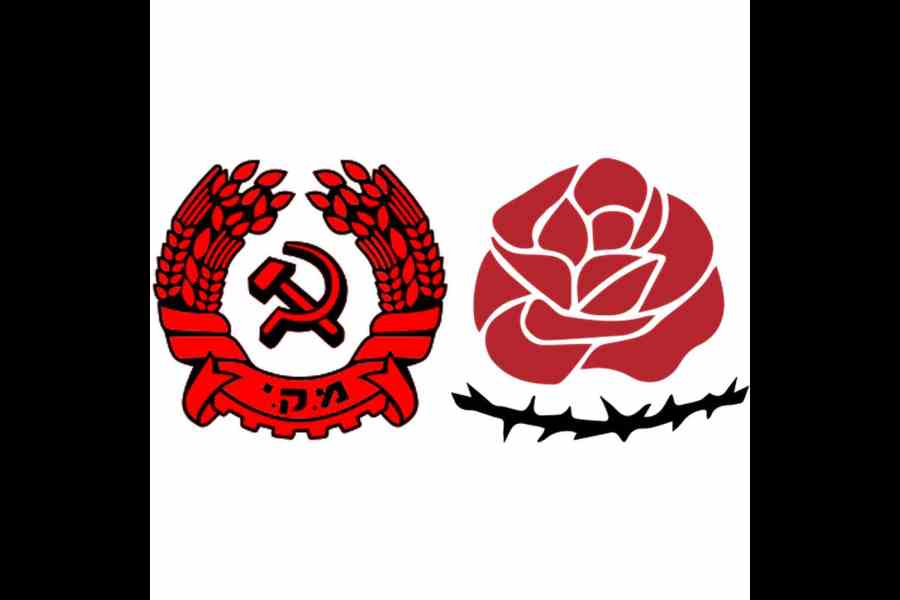A whole swathe of countries, from Afghanistan to Sudan, once had strong communist movements that even wielded power at one time or another, usually in alliance with other secular, anti-imperialist forces, to carry forward the process of economic decolonisation in their respective countries. The Tudeh Party in Iran (the communist party there) had been a partner of Mohammad Mossadegh when he nationalised the Anglo-Iranian Oil Company, which had controlled Iran’s oil industry. Likewise, Abd al-Karim Qasim’s government, which had been supported by the Iraqi Communist Party, had nationalised the oil industry in Iraq. Afghan communists organised under the People’s Democratic Party of Afghanistan had started taking gigantic steps towards the modernisation of that country after the Saur Revolution. Palestinian resistance against Zionist settler colonialism had been spearheaded by the Palestine Liberation Organization in which Marxist formations like the Popular Front for the Liberation of Palestine and the Democratic Front for the Liberation of Palestine had played a leading role. One can go on and on.
The United States of America’s imperialism had consistently promoted and taken the help of Islamic fundamentalism to break the power of the Communists and secular nationalists. It promoted the Taliban in Afghanistan; it engineered a coup against Mossadegh in Iran with the help of Ayatollah Kashani; it promoted Hamas as a counter to the Marxist-influenced PLO within the Palestinian resistance; and, very recently, it has made use of religious fundamentalists to oust the Bashar al-Assad regime in Syria. The one exception to this was Iraq where it had supported Saddam Hussein’s Ba’ath Party’s coup against Qasim; that is, it had used the Ba’athists, not the Islamists, against the communists (the Iraqi Ba’athists had been much more stridently anti-Communist than their Syrian counterparts). But it later used fundamentalism against Saddam Hussein.
The new regimes that had replaced the communist-influenced ones had been absolutely ruthless in repressing the communists; the Shah of Iran’s intelligence agency, SAVAK, had been notorious in this respect but even after the Shah’s fall, the Islamic revolution had not shown an iota of tolerance towards the communists. This had also led to the communists being utterly hostile to the Islamists in power.
The irony, however, lies in this. The regimes that US imperialism had directly or indirectly brought to power against the communist-influenced regimes (indirectly in the case of Iran, where the Islamists, after the Shah’s repression against communists, had been left as the only major oppositional force against the monarchy), had then, under the pressure of the objective circumstances, also turned against US imperialism. Whether it is the Taliban, or Saddam Hussein (who incidentally had not denationalised Iraq’s oil industry after coming to power), or the Iranian Islamists, the new regimes could by no means be called imperial satellites; popular anger against imperialism continued to be reflected through these new regimes despite their unrelenting anti-communist pogroms. This is a phenomenon that has irked US imperialism and its Israeli ally no end; and the recent American-backed Israeli attack on Iran should be located within this context.
The usual justification advanced for the Israeli attack on Iran, namely that Iran was about to become a nuclear power and had to be stopped, lacks both legal and moral validity, apart from portending an obvious danger. It lacks legal validity because even if Iran has nuclear weapons, attacking it for this reason is not sanctioned by any international law. It lacks moral validity because for Israel, which is a nuclear power itself and is not a signatory to the nuclear Non-Proliferation Treaty, to argue that Iran, which is a signatory to the NPT, should not have nuclear weapons, is tantamount to saying that some countries have superior rights compared to others. It is also dangerous because whether the Iranian nuclear sites are being used only for developing nuclear energy or for arms production, bombing them constitutes an act of unbelievable irresponsibility since it can have a devastating fallout.
More importantly, however, the claim about Iran developing nuclear weapons is completely false. Iran has been subject to inspection by the International Atomic Energy Agency, and no inspection by that body has ever revealed that Iran was about to become a nuclear power. Even the US’s intelligence agencies do not anticipate such an eventuality. Besides, Iran was in the process of negotiating the supervision of its nuclear sites and further safeguards for ensuring that its nuclear programme is for peaceful purposes and not for developing weapons could have been introduced. Instead, it was attacked in the midst of these talks.
This suggests that the reason behind the attack was not any serious apprehension about Iran developing nuclear weapons but to bring about a regime change there. US imperialism, in other words, having used Islamic fundamentalism to defeat progressive secular regimes in this entire region, is now attempting the opposite, to enlist the support of secular progressive forces to overthrow the fundamentalists in power who are currently on the front line of fighting imperialism.
What is striking, though, is that the bulk of the progressive and secular forces in Iran, especially those under communist influence, have refused to take the bait, arguing rightly that any regime change in Iran has to be at the behest of the people of Iran, not of US imperialism. For those who have been victimised by the current Iranian regime to spurn American efforts to woo them against it represents an act of great courage and commitment to principles.
The Tudeh Party of Iran and the Israeli communist party, in a joint statement against the war unleashed by Israel, have stated: “Israel and the U.S. — after Iraq, Libya and Syria — are now determined to undermine Iranian sovereignty...” Their principled position in calling for the unity of all freedom-loving forces against “this... brutal violation of international law” is a silver lining in the current bleak scenario.
Prabhat Patnaik is Professor Emeritus, Centre for Economic Studies, Jawaharlal Nehru University, New Delhi

